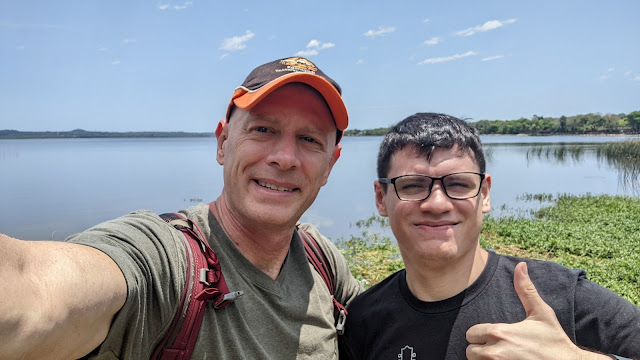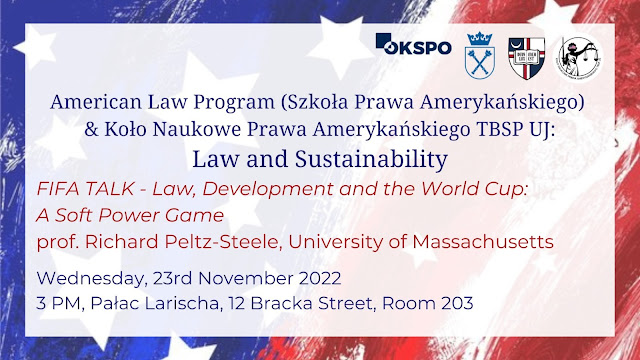Differences in legal education between civil law countries and the United States—and analogous divergence in priorities in the American law school classroom—might have ramifications for the rule of law.
Legal education in the United States and in the civil law countries of Europe are famously different. The
American model is identified with case law, the Socratic method, and inductive reasoning. The civil law model is identified with code, lecture, and deductive logic.
Both sides have plusses and minuses, and that might be why, in recent decades, we see signs of change and convergence. American legal education has sought to marginalize the traditional model to one strategy on a menu of effective pedagogies. Meanwhile, many schools in Europe have sought increasingly to import the "Paper Chase" style of classroom engagement.
Teaching periodically in Poland for more than 15 years, I've found students delightfully receptive to the classroom experience that U.S. law students take for granted. I'm inclined to conclude, generalizing of course, that the way U.S. law professors interact with students has the potential to contribute valuably to education in Europe, where lecture still predominates. My U.S. students tend better than their European counterparts to develop forensic skills and to use analogical reasoning.
At the same time, I have found, generalizing again, that my students in Europe are better versed than their American counterparts in the history and philosophy of law. Their understanding of context is informed by a storied Latin vocabulary. They are better able to convert memorized knowledge to application.
There is no doubt that the way law schools teach has an impact on how lawyers work and think about the law. What's less clear is the extent to which this impact represents a normative social advantage—for example, better preparing lawyers to protect human rights and uphold the rule of law.
In recent years, Europe has been struggling with rule-of-law crises in central and eastern Europe. In particular, populist movements embodied in the Duda and Orbán regimes in Poland and Hungary have given rise to disputes over judicial independence. In a similar vein, the Romanian legislature enacted judicial reforms in the late 2010s.
Ostensibly, the Romanian reforms were implemented to combat corruption. But that's not how Brussels saw it. The reforms wound up before European Union courts, culminating in judgments in 2021 and in 2022. The 2021 judgment of the Grand Chamber has been well regarded as outlining a progressive tolerance for the development of the rule of law while affirming EU supremacy ("primacy") in constitutional law for matters within the union prerogative.
Unfortunately, Romanian resistance to that supremacy caused the Grand Chamber to revisit the problem last year. Notwithstanding the proceedings in European courts, pro-reform domestic authorities and the constitutional court of Romania had upheld the reforms. Authorities moreover asserted that lower court judges could be subject to discipline for testing Romanian constitutional court rulings against the requirements of EU law.
The Grand Chamber held in 2022 that "ordinary courts of a Member State" must be permitted "to examine the compatibility with EU law of national legislation which the constitutional court of that Member State has found to be consistent with a national constitutional provision that requires compliance with the principle of the primacy of EU law"; and that domestic judges may not be disciplined for "departing from case-law of the constitutional court of the Member State concerned that is incompatible with the principle of the primacy of EU law."
At the meeting of the General Congress of the International Academy of Comparative Law (IACL) in Asunción, Paraguay, in October, a panel on rule of law examined national reports from 16 countries, including the United States, Poland, Hungary, and Romania. I found especially compelling remarks by the rapporteur for Romania. (I'm sorry that I did not get the rapporteur's name; it does not appear in the composite issue report.)
Law professors everywhere, laudably, want their students to be prepared for any job, the rapporteur said. But European students feel they're trained as if to become judges. Roman heritage, Roman law, he said, is sacred. Motivated to prepare students to do legal reasoning, he said, European law professors train students that there is "only one correct meaning," "one true meaning" of a text, and the students, in turn, "become very formalistic."
Often, he said, judges then "miss the point" by "applying law automatically." And that was the problem, he opined, with the Romanian constitutional court in upholding the judicial reforms. The court reasoned, he explained, that because rule of law exists in both the Romanian constitution and EU treaties, the court "blindly" concluded that Romanian law comports with EU law. "False," he said; "it's the way in which we teach."
In other words, the Romanian judges assessed black-letter law for comportment with black-letter law without digging beneath the surface. They were ill equipped, or declined, to look beyond formalism to test the law functionally. Moreover, by shielding the constitutional court's analysis from further interrogation in the lower courts, top jurists were excessively insistent on the exclusivity of their prerogative: one true meaning.
I don't know enough about the situation in Romania to assess the merits of the Romanian position, or the EU position, or the perspective of the rapporteur. But I was intrigued by his parting thought:
"I'm astonished," the rapporteur said, that "in the United States, you practically criticize law professors that they don't tell you the true meaning. It would be a pity to change that."
As I wrote recently, law professors in the United States are under great pressure to abandon traditional teaching methods in favor of bar prep and skills readiness. Law schools such as mine place little value on policy, theory, and moral deliberation, but prize memorized law and practice skills. The latter are valuable, to be sure. But it's the former that make law a profession and not mere occupation.
Prioritization of occupational objectives pressures professors to abandon the traditional teaching strategies of the American model. Cases give way to code, or rules. Inductive reasoning gives way to deduction. Socratic dialog gives way to PowerPoint outlines, recall games, and lectures. This is convergence of a sort. It's not a good sort.
I don't contend that the traditional model of legal education in the United States is superior to other models. Nor would I enshrine the case method to the exclusion of a multitude of teaching strategies. But American legal education in the 20th century excelled at preparing lawyers to turn problems over and examine them through many lenses.
If we do our job right, law professors create a space for creativity to thrive. That creativity defines law as a profession. And only as professionals can lawyers safeguard the rule of law.
It would be a pity to change that.
 |
Me and my mate Octavio Sosa in Paraguay. A first-year engineering student, he plays a mean guitar.
RJ Peltz-Steele CC BY-NC-SA 4.0
|



















.jpg)






.jpg)